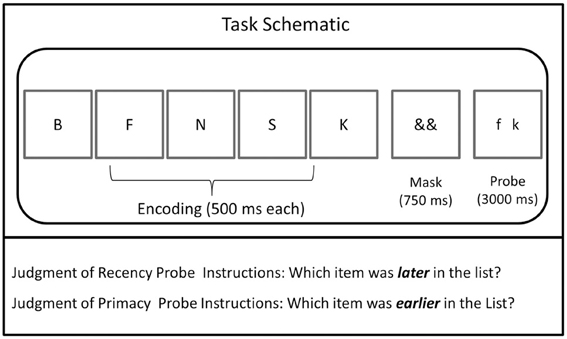고정 헤더 영역
상세 컨텐츠
본문
- Serial Position Effect Psychology Example
- Postman And Phillips Serial Position Effect Experiment Video
SERIAL POSITION EFFECTSerial Position Effect and RehearsalFigure 1.Serial position effect. Immediate recall of a list of items (such as words) is best from the end of the listand worst in the middle.One example of the role of rehearsal comes from the serial position effect. If participantshear a list of words and recall them immediately, they recall more words from the beginning and fromthe end of the list than from the middle. Figure 2-3k shows the serial position effect for a list of 20words.Figure 2Serial position effect. Immediate recall of a list of items (such as words) is best from the end of the listand worst in the middle.The better recall of the first few words, called the primacy effect, reflects the extramaintenance rehearsal they receive.
The first word gets the most extra rehearsal, because it's the onlyone the participants have. The second word in the list shares rehearsal time with the first, the third wordshares with the first two, and so on. To test this explanation, participants are asked to equate rehearsaltime for all words on the list by repeating each word three times.

Equal rehearsal wipes out the primacyeffect. Figure 3-3k shows this from the difference (labeled PRIMACY) between the red,solid and blue, dashed lines.The recency effect depends on, becausedelaying recall wipes it out. Figure 2 shows this from the difference (labeled RECENCY)between the red, solid and green, dotted lines.To return to the exercise, click on the Back button in the upper left corner of thebrowser window.asgn3k.

Serial Position Effect Psychology Example
The present experiment employed a procedure that was a mixture of Brown-Peterson and free-recall paradigms. Before and after the presentation of each to-be-recalled word, there was a 20-second period of counting-backward activity. At the end of each 10-word list, subjects were asked to free recall the words in that list. After four such lists, they were asked to free recall all the words from the four lists. It was found that not only did the initial recall show a pronounced positive recency effect, but so did the final recall. The results suggest that the observation of a recency effect in a free-recall experiment might not reflect the output of short-term memory.
Postman And Phillips Serial Position Effect Experiment Video
Previous article in issue. Next article in issue.




